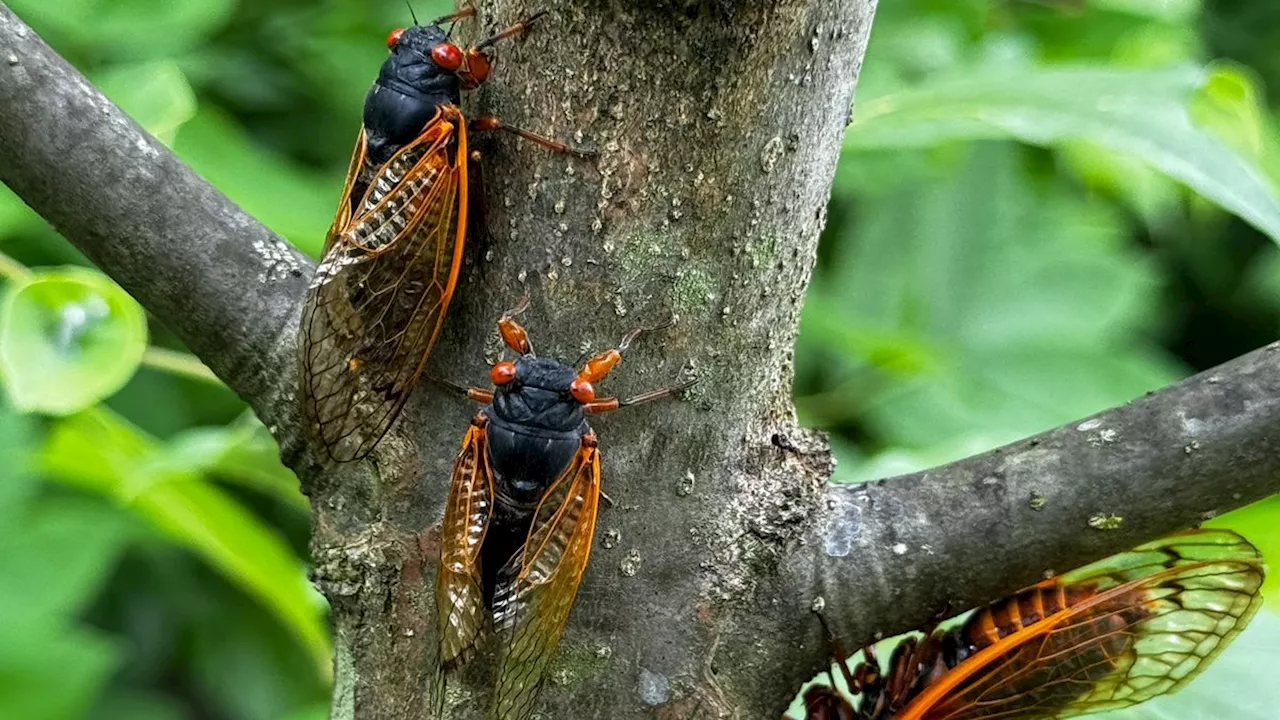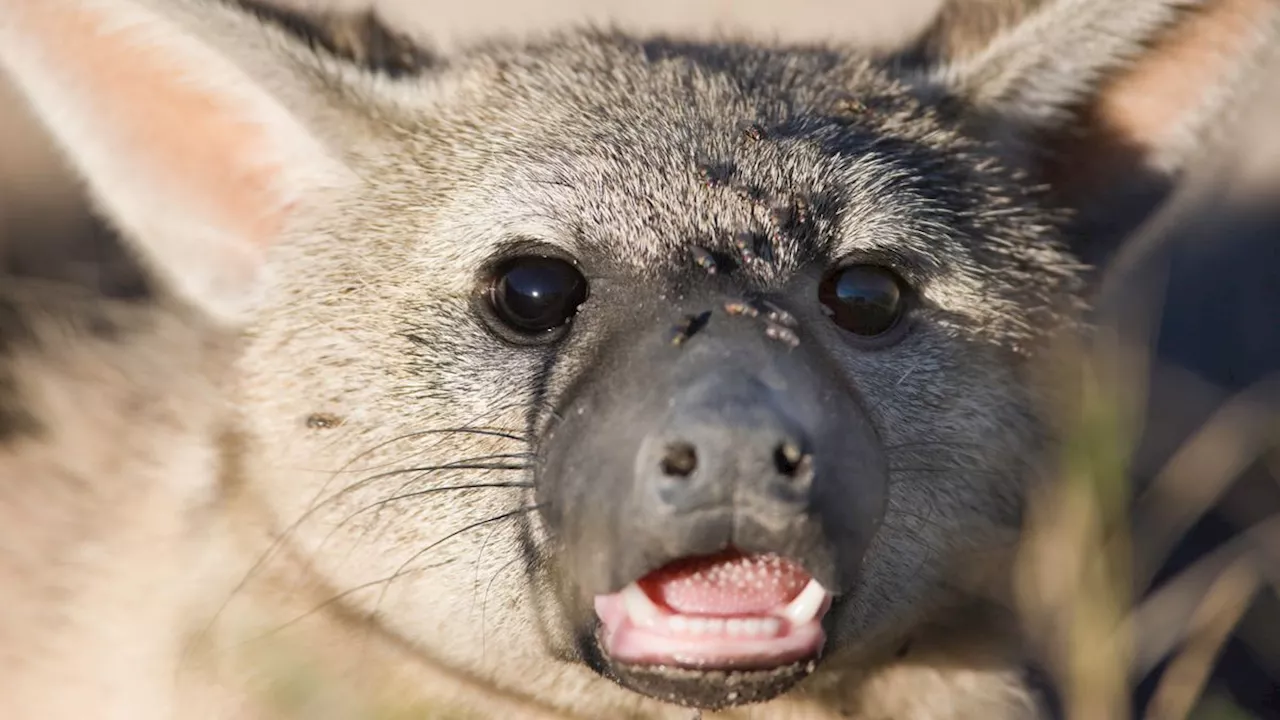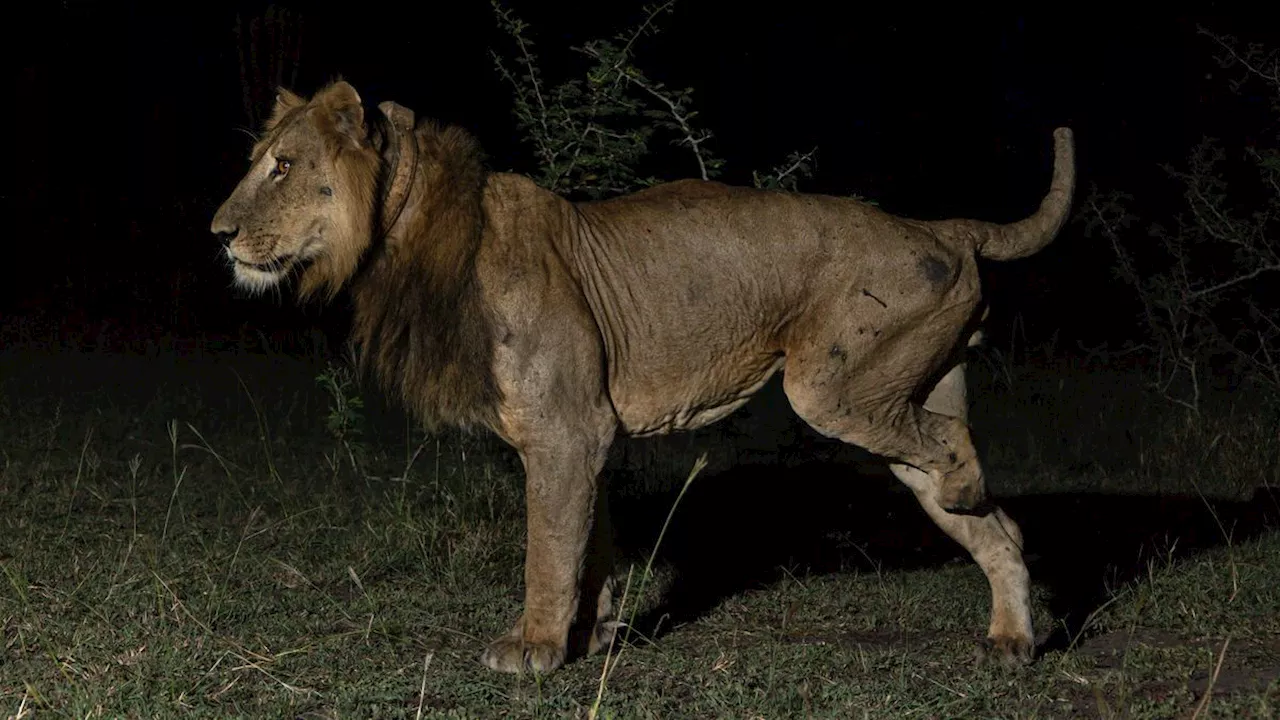Hannah Osborne is the planet Earth and animals editor at Live Science. Prior to Live Science, she worked for several years at Newsweek as the science editor. Before this she was science editor at International Business Times U.K. Hannah holds a master's in journalism from Goldsmith's, University of London.
A three-legged lion and his brother made a record-breaking swim across a river teeming with crocodiles and hippos in a desperate search for sex, researchers have revealed. The pair has now been seen traversing the treacherous Kazinga Channel in Uganda six times, including a nearly mile-long swim that was captured on film.
"He was swimming much slower speed compared to . But he made it," Braczkowski, a researcher at Griffith University in Australia and scientific director of the Volcanoes Safaris Kyambura Lion Project, told Live Science. The study, which was partially funded by Northern Arizona University, is due to be published in the journal Ecology and Evolution. Jacob and Tibu are in a precarious position in their homeland. The lion population in the region has been decimated over the last few decades, mainly driven by human-wildlife conflict and poaching, Braczkowski said. There are estimated to be around 40 lions left in the Queen Elizabeth National Park, and the population is under pressure from a sex ratio problem.
By submitting your information you agree to the Terms & Conditions and Privacy Policy and are aged 16 or over.The brothers made the initial swim because there were no females in their territory. They then had to make a return journey — which was captured on film — after a clash with two other groups of males."They came in and were trying to challenge for territory and got their butts kicked," Braczkowski said."So that's why they swam back.
United States Latest News, United States Headlines
Similar News:You can also read news stories similar to this one that we have collected from other news sources.
 Orangutan 'stoically waits' for tourists in award-winning photograph 'See No Evil'Hannah Osborne is the planet Earth and animals editor at Live Science. Prior to Live Science, she worked for several years at Newsweek as the science editor. Before this she was science editor at International Business Times U.K. Hannah holds a master's in journalism from Goldsmith's, University of London.
Orangutan 'stoically waits' for tourists in award-winning photograph 'See No Evil'Hannah Osborne is the planet Earth and animals editor at Live Science. Prior to Live Science, she worked for several years at Newsweek as the science editor. Before this she was science editor at International Business Times U.K. Hannah holds a master's in journalism from Goldsmith's, University of London.
Read more »
 The 165-year reign of oil is coming to an end. But will we ever be able to live without it?Hannah Osborne is the planet Earth and animals editor at Live Science. Prior to Live Science, she worked for several years at Newsweek as the science editor. Before this she was science editor at International Business Times U.K. Hannah holds a master's in journalism from Goldsmith's, University of London.
The 165-year reign of oil is coming to an end. But will we ever be able to live without it?Hannah Osborne is the planet Earth and animals editor at Live Science. Prior to Live Science, she worked for several years at Newsweek as the science editor. Before this she was science editor at International Business Times U.K. Hannah holds a master's in journalism from Goldsmith's, University of London.
Read more »
 Double cicada bloom 2024: Google Doodle celebrates once-in-221-year event with band of bugsHannah Osborne is the planet Earth and animals editor at Live Science. Prior to Live Science, she worked for several years at Newsweek as the science editor. Before this she was science editor at International Business Times U.K. Hannah holds a master's in journalism from Goldsmith's, University of London.
Double cicada bloom 2024: Google Doodle celebrates once-in-221-year event with band of bugsHannah Osborne is the planet Earth and animals editor at Live Science. Prior to Live Science, she worked for several years at Newsweek as the science editor. Before this she was science editor at International Business Times U.K. Hannah holds a master's in journalism from Goldsmith's, University of London.
Read more »
 Aardwolf: The weirdo hyena cousin that eats 300,000 termites each nightHannah Osborne is the planet Earth and animals editor at Live Science. Prior to Live Science, she worked for several years at Newsweek as the science editor. Before this she was science editor at International Business Times U.K. Hannah holds a master's in journalism from Goldsmith's, University of London.
Aardwolf: The weirdo hyena cousin that eats 300,000 termites each nightHannah Osborne is the planet Earth and animals editor at Live Science. Prior to Live Science, she worked for several years at Newsweek as the science editor. Before this she was science editor at International Business Times U.K. Hannah holds a master's in journalism from Goldsmith's, University of London.
Read more »
 Watch Live: Justice Department announces Ticketmaster and Live Nation antitrust suitThe Justice Department filed a federal lawsuit accusing Ticketmaster and its parent company Live Nation of illegally monopolizing the live entertainment industry.
Watch Live: Justice Department announces Ticketmaster and Live Nation antitrust suitThe Justice Department filed a federal lawsuit accusing Ticketmaster and its parent company Live Nation of illegally monopolizing the live entertainment industry.
Read more »
 Watch Live: DOJ announces Live Nation and Ticketmaster antitrust lawsuitThe Department of Justice filed an antitrust lawsuit against Live Nation Entertainment, accusing the world's largest concert promoter and ticketing company of…
Watch Live: DOJ announces Live Nation and Ticketmaster antitrust lawsuitThe Department of Justice filed an antitrust lawsuit against Live Nation Entertainment, accusing the world's largest concert promoter and ticketing company of…
Read more »
